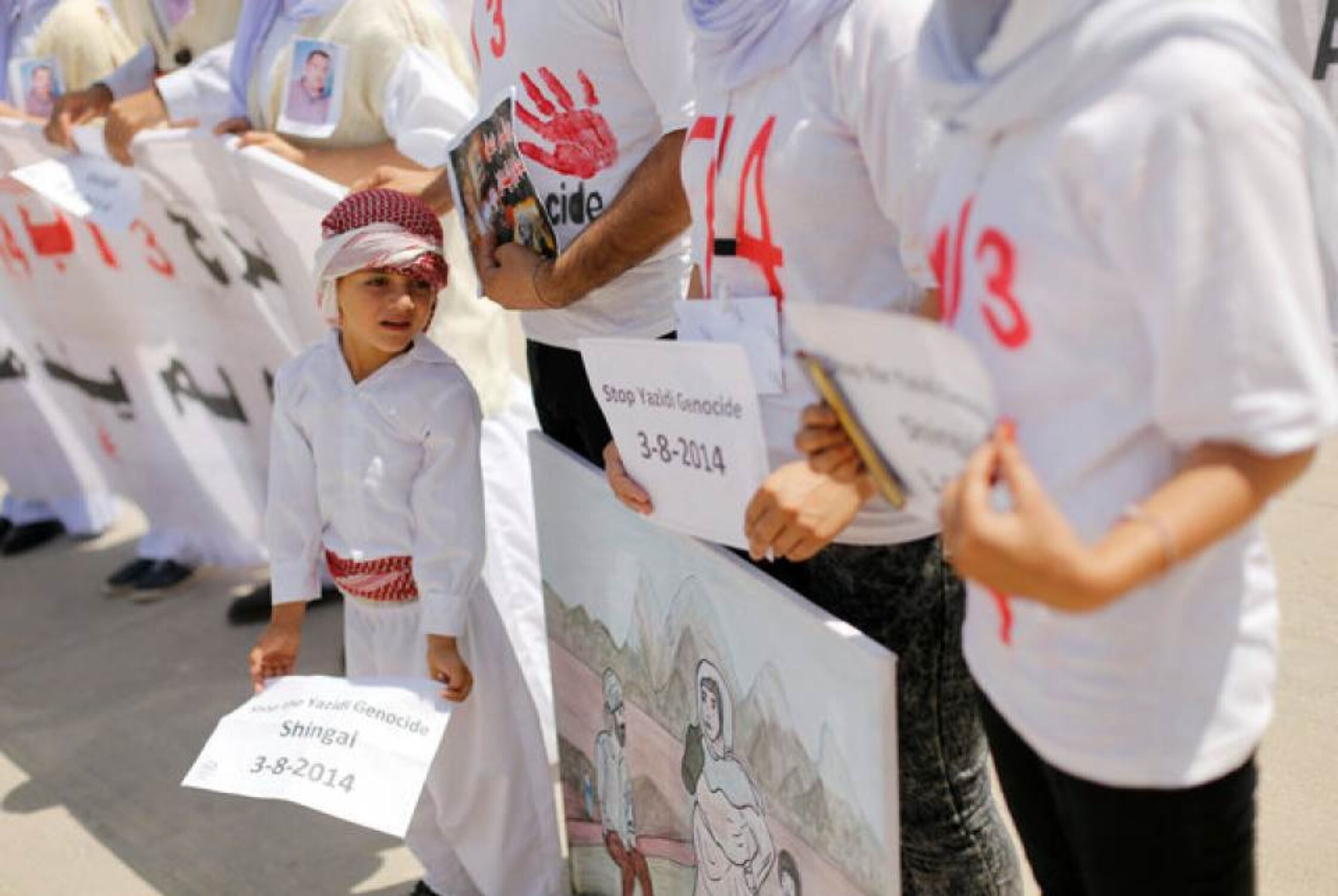Lest we forget: Assisting ISIS survivors in Iraq

This month marks the three-year anniversary of the withdrawal of an 11,000-strong Peshmerga force from Sinjar in northern Iraq. The withdrawal left Sinjar’s Yazidi minority community besieged by Islamic State (ISIS) fighters. For one displaced Yazidi family with whom I recently met in the Kurdistan Region of Iraq, there is both reason to grieve and to celebrate. The head of family told me that dozens of extended family members were kidnapped by ISIS during the siege. But this anniversary also marks the first that his now 15-year-old daughter, Vian,* is home.
Walking through the camp, we learned that Vian is not the only recently returned abductee. We heard reports of a slow but steady stream of arrivals…
Vian was 12 years old when she was abducted by ISIS fighters and spent the past three years between Raqqa and Mosul, she believes. During the final push to liberate Mosul, Vian was fortunate to survive a coalition air strike on the house where she was being held. She emerged from the rubble and eventually stumbled upon Iraqi Security Forces. She recounted that until she spoke to them in Kurdish, the soldiers did not believe she was a Yazidi abductee. Vian was taken to a safe house, and within a day, her father drove to East Mosul to pick her up.
When I met Vian at an internally displaced persons (IDP) camp, she had been reunited with her family only two weeks prior. The abuses that women and girls like Vian were subjected to under ISIS are well-documented; there was no need to discuss her life in captivity. This was a silent understanding. If she was willing, my only interest was in learning what services, if any, she desired and would benefit from now.
Vian shared that, within 24 hours of her return, she was seen by a female doctor at Dohuk Hospital. Immediate access to specialized healthcare is a fundamental pillar of gender-based violence (GBV) response services in emergencies. Her access to other elements of GBV-related care, however, remained unclear. As far as Vian and her father knew, they had a follow-up medical appointment scheduled for the next month, but did not know the purpose and nature of this appointment. Vian privately expressed a desire to speak to a social worker of some sort to address her constant nightmares, insomnia, and desperation over the whereabouts of her other siblings. At this camp, however, there was no clear mechanism to facilitate Vian’s access to information or such services.
The original fervor about Yazidi abductees has faded somewhat, but more than 3,000 remain in captivity. With ongoing military offenses against ISIS, more abductees will return from captivity in the coming weeks. Their needs must be addressed.
Walking through the camp, we learned that Vian is not the only recently returned abductee. We heard reports of a slow but steady stream of arrivals, as camp residents approached us with requests for assistance. One IDP leader showed us a tally of arrivals, listing women and girl abductees of all ages and with arrival dates from several months ago to as few as one day.
Yet the humanitarian footprint in this particular camp is visibly light. As my colleague Daryl Grisgraber explains in her blog Surviving the ISIS Occupation: the Struggle Isn’t Over, the needs of these displaced are more profound than ever, but for overburdened donors and overextended organizations, the needs of the long-term displaced don’t carry the same urgency as the needs of people fleeing three years of brutal siege. However, within these IDP communities, one finds many Vians who are at risk of getting lost in the complicated system that is international humanitarian aid.
The original fervor about Yazidi abductees has faded somewhat, but more than 3,000 remain in captivity. With ongoing military offenses against ISIS, more abductees will return from captivity in the coming weeks. Their needs must be addressed.
* Name has been changed to protect identity.
Top photo: Yazidis attend a commemoration to mark three years since Islamic State launched what the United Nations said was a genocidal campaign against them, in Sinjar region, Iraq August 3, 2017. REUTERS/Suhaib Salem